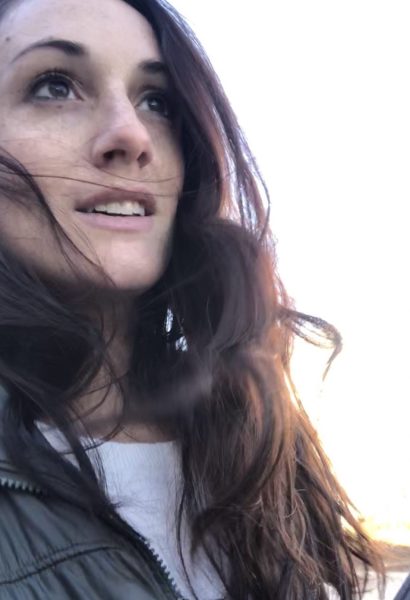When I read “Why I think of you every time I bruise,” I’m struck by its brilliant compression. If the timer starts once a short story begins, then flash fiction this short must be set at the speed of light. What are the challenges and pleasures of writing a piece this compressed?
It’s a challenge to get emotional intensity across with as few words as possible. It’s difficult to establish emotional resonance in a condensed space; you don’t have the room to establish a complex backstory or elaborate on a character. And your question really highlights what’s hard about flash—it’s hard to decide what to keep on the page and what to leave off to achieve that resonance. I like that challenge, however, and I suppose the pleasure comes in trying to find ways to show an emotion in a new or interesting way.
This piece kicks off with a randy young couple and then quickly intensifies. So much physical vulnerability in the images—the bruised backs, the “neck in the lamplight,” the shoulder blade. The emotional fragility deepens at the end with the repeated “turn around,” and the anguish of that expanding distance between the two. Could you take us through your process here? Also, I’m interested in the idea of bruising, since it’s customarily a physical injury but operates on two levels here. Can you talk a little about what “bruise” means in this piece?
I wanted to write a story where you could feel a relationship turn. Lately I’ve been thinking a lot about befores and afters, and the shifting points where we feel our lives changing. I’ve also been thinking a lot about distance and the ways we feel close or apart from people. I wanted to write about loneliness, but not in the conventional “I am alone” way. I wanted to show how someone could feel alone right next to someone.
If you have a bruise, you’ve been hurt in the past and it’s sensitive to the touch. It takes a long time to heal, and is a visual reminder of pain. It’s bleeding that your skin contains, kind of like when your heart hurts but your chest contains it. There are some people who will always make you bleed.
Such a short piece, yet I was intensely moved by it. In the beginning, the couple is together, so close, so full of each other. And at its end, they are separated and I can see all the lonely years ahead. Can you talk about the magic that makes this happen?
I think the use of second person is very intimate and makes the reader feel close to the story immediately. I also wanted to make the structure reflect the before and after I referenced earlier. The three paragraphs are before the change, during the change, and after the change, and I wanted to unify them all with a repeated refrain. Ultimately, I wanted it to sound like someone explaining their poor decisions, or trying to make sense of a repeated hurt. I wanted her to be trying to put the unexplainable into words—the question here is really “Why did it fall apart?” I chose the refrain “Because” so that it could keep answering the question of “Why?” over and over again, building this feeling of desperation and echoing sadness.
In his craft book Poetry Home Repair Manual, Ted Kooser writes about how reading a poem might change the way we see things (he uses for example the beautiful “Fire Burning in a Fifty-Five Gallon Drum” by Jared Carter). Do you think we are changed by the literary works we read? What have you read that has changed you?
I absolutely think we’re changed by what we read, as long as it resonates with you in some meaningful way. I always get very nervous about these kinds of questions—I always compare myself to people who are so well read and can spout off literary inspirations. I’d say I’m changed by writers who take risks and speak truths. Some stories I can think of that have changed me in some way are my favorites are Kathy Fish’s “Collective Nouns for Humans in the Wild,” Megan Giddings’ “Again and Again and Again,” Meghan Phillips’ “Now That the Circus Has Shut Down, the Human Cannonball Looks for Work,” and Amanda Miska’s “Weightless and Hysterical.”
What’s your next project?
I have two novels in progress—I’m revising one and writing the first draft of another. I also have a chapbook of flash fiction that I’ve submitted to several places, so hopefully I can find that chapbook a home.



 Included in the price of SmokeLong Fitness:
Included in the price of SmokeLong Fitness: